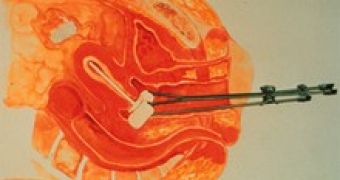Merck & Co. Inc. urged U.S. advisers to back a new vaccine for women and girls as young as 9 that is designed to block a sexually transmitted virus that causes cervical cancer - HPV.
The vaccine, named Gardasil, could offer a major boost to women's health and the struggling drug maker's fortunes. Some analysts predict annual sales topping $2 billion. Gardasil targets four types of the human papilloma virus, or HPV, which causes genital and skin warts and most cervical cancer.
The second-biggest cancer killer in women, cervical cancer is blamed for about 300,000 deaths worldwide each year, including almost 4,000 in the United States.
Merck told a Food and Drug Administration advisory panel that Gardasil prevented early-stage cervical cancer and precancerous lesions in two studies of more than 17,000 women and girls age 9 to 26. Protection has lasted five years in 500 females who have been monitored for that long, Merck officials said.
"This vaccine, when given to women prior to exposure, is highly effective," said Dr. Eliav Barr, Merck's senior director of biologics clinical research.
The FDA panel is expected to vote later Thursday on whether the vaccine is safe and effective enough for U.S. approval. A panel endorsement would move the vaccine closer to the market as the FDA usually follows such recommendations. In most cases the immune system clears HPV from the body before it causes harm. The Merck vaccine fights four HPV types believed to cause more than 70 percent of cervical cancer and 90 percent of genital warts. FDA staffers who reviewed Merck's data said the vaccine seemed effective, with no major safety concerns.
Gardasil is a key product for Merck, as it faces thousands of lawsuits alleging harm from withdrawn arthritis drug Vioxx and upcoming generic competition to cholesterol drug Zocor.
A final FDA decision is expected by June 8, putting Merck ahead of a potential rival vaccine by GlaxoSmithKline Plc and its U.S. partner MedImmune Inc.. Merck and France's Sanofi-Aventis would market Gardasil through a joint venture in Europe if it won clearance there. Merck licensed the vaccine technology from Australian company CSL Ltd..
Shares of Merck, based in Whitehouse Station, New Jersey, were up 36 cents, or 1.05 percent, at $34.70 in early afternoon trade on the New York Stock Exchange.

 14 DAY TRIAL //
14 DAY TRIAL //